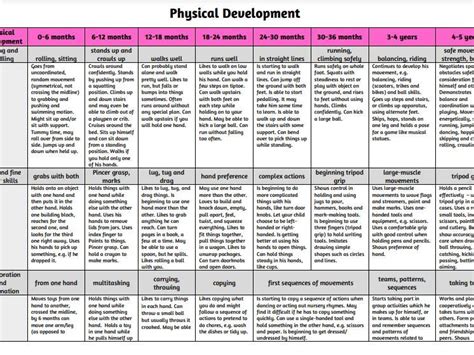10 Living Will Tips For Peace Of Mind

Creating a living will, also known as an advance directive, is a crucial step in ensuring that your wishes regarding medical treatment are respected if you become unable to communicate them yourself. This document outlines your preferences for end-of-life care, helping to alleviate the burden on your loved ones and providing you with peace of mind. Here are 10 tips to consider when creating a living will:
Understand the Purpose: Before drafting your living will, it’s essential to understand its purpose. This document allows you to specify the medical treatments you do or do not want to receive if you become incapacitated. It’s a way to communicate your wishes to your healthcare providers and family members, ensuring that they respect your autonomy and make decisions that align with your values.
Choose Your Healthcare Agent Wisely: A critical component of a living will is the appointment of a healthcare agent (or proxy). This person will make medical decisions on your behalf if you’re unable to do so. Select someone you trust implicitly, who understands your values, and is willing to carry out your wishes, even if they disagree with them personally.
Be Specific About Your Wishes: Your living will should clearly outline your preferences regarding various medical treatments. Consider including instructions about life-sustaining treatments such as CPR, mechanical ventilation, and Tube feeding. Also, think about your stance on palliative care, organ donation, and other end-of-life treatments.
Consider Your Quality of Life: When making decisions about your end-of-life care, it’s crucial to consider what quality of life means to you. Think about the conditions under which you would or would not want to receive certain treatments. For example, would you want to be kept alive by machines if you’re in a permanent vegetative state or have a terminal illness with no hope of recovery?
Discuss with Your Family and Healthcare Providers: Open communication is key when it comes to your living will. Discuss your document with your family members, healthcare agent, and healthcare providers to ensure everyone understands your wishes. This can help prevent misunderstandings and conflicts down the line.
Review and Update Regularly: Your living will is not a static document; it should be reviewed and updated periodically to reflect any changes in your wishes, health status, or personal circumstances. Significant life events, such as a diagnosis of a serious illness or a change in your marital status, may prompt a review of your document.
Combine with Other Advance Directives: Depending on your state, you may have the option to combine your living will with other advance directives, such as a durable power of attorney for healthcare or a do-not-resuscitate (DNR) order. Understanding the laws in your state and how these documents work together is vital.
Ensure It’s Legally Binding: To be effective, your living will must be legally binding. This typically involves signing the document in the presence of witnesses or a notary public, depending on your state’s requirements. Ensure you follow the specific legal formalities in your jurisdiction to avoid any potential issues.
Make It Accessible: It’s crucial that your healthcare providers and family members can access your living will when needed. Keep the original document in a safe and accessible place, and consider providing copies to your healthcare agent, primary care physician, and other relevant parties.
Seek Professional Guidance: Drafting a living will can be a complex process, especially when considering the legal and medical implications. Seeking guidance from an attorney who specializes in elder law or estate planning can help ensure that your document is thorough, legally binding, and accurately reflects your wishes.
Remember, a living will is a personal and individual document. What's most important is that it truly reflects your values, beliefs, and wishes regarding your end-of-life care. By being thorough, open with your loved ones, and ensuring your document is legally sound, you can have peace of mind knowing that your autonomy will be respected, even when you're unable to communicate.
In conclusion, creating a living will is an act of love and responsibility towards yourself and your family. It’s a way to ensure that your end-of-life care is managed with dignity and respect, in accordance with your deepest wishes. By following these tips and considering your unique circumstances, you can craft a living will that provides you and your loved ones with peace of mind.
What is the difference between a living will and a last will and testament?
+A living will, or advance directive, specifies your wishes for medical treatment if you become unable to communicate. A last will and testament, on the other hand, outlines how your assets should be distributed after your death. While both are important legal documents, they serve distinct purposes and are used in different contexts.
Can I change my living will after it's been signed?
+Yes, you can change your living will after it's been signed. In fact, it's recommended that you review and update your document periodically to reflect any changes in your wishes or circumstances. To make changes, you should follow the same formalities required for the original document, such as signing in the presence of witnesses or a notary public, depending on your state's laws.
How do I ensure my living will is followed by healthcare providers?
+To ensure your living will is followed, make sure to discuss it with your healthcare providers and give them a copy. Also, appoint a healthcare agent who is aware of your wishes and can advocate on your behalf. Keeping your document in an accessible place and providing copies to relevant parties can also help guarantee that your wishes are respected.
By understanding the importance and intricacies of a living will, you can take a significant step towards securing your autonomy and peace of mind, even in the face of uncertainty. Remember, this document is a reflection of your values and wishes, and its creation should be approached with care, consideration, and the guidance of professionals when necessary.



